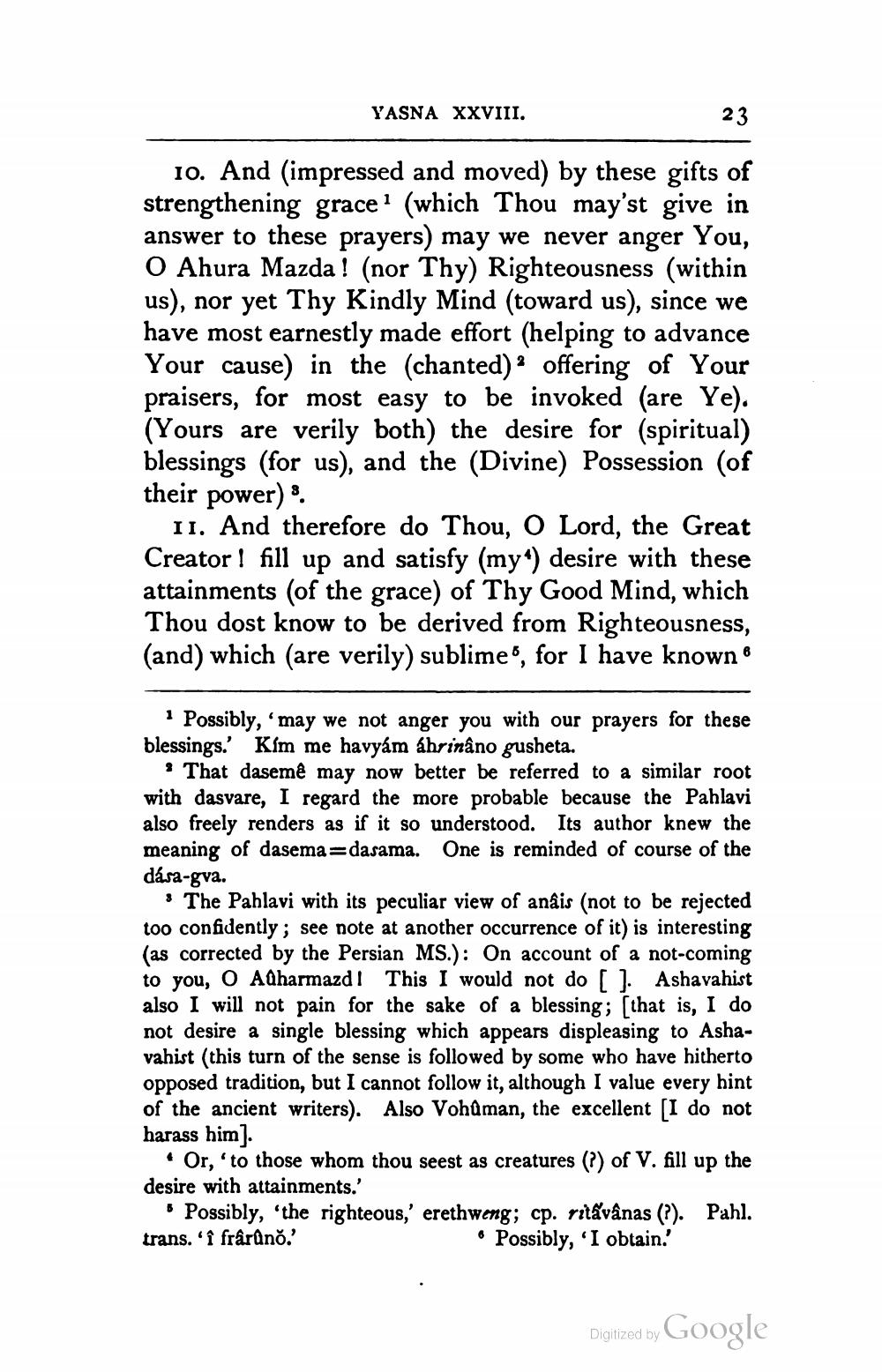________________
YASNA XXVIII.
23
10. And impressed and moved) by these gifts of strengthening grace (which Thou may'st give in answer to these prayers) may we never anger You, O Ahura Mazda! (nor Thy) Righteousness (within us), nor yet Thy Kindly Mind (toward us), since we have most earnestly made effort (helping to advance Your cause) in the (chanted)? offering of Your praisers, for most easy to be invoked (are Ye). (Yours are verily both) the desire for (spiritual) blessings (for us), and the (Divine) Possession (of their power) .
11. And therefore do Thou, O Lord, the Great Creator ! fill up and satisfy (my) desire with these attainments (of the grace) of Thy Good Mind, which Thou dost know to be derived from Righteousness, (and) which (are verily) sublime”, for I have known
* Possibly, 'may we not anger you with our prayers for these blessings. Kim me havyám ábrinano gusheta.
? That daseme may now better be referred to a similar root with dasvare, I regard the more probable because the Pahlavi also freely renders as if it so understood. Its author knew the meaning of dasema=dasama. One is reminded of course of the dása-gva.
The Pahlavi with its peculiar view of anâis (not to be rejected too confidently; see note at another occurrence of it) is interesting (as corrected by the Persian MS.): On account of a not-coming to you, O Adharmazd! This I would not do [ ] Ashavahist also I will not pain for the sake of a blessing; (that is, I do not desire a single blessing which appears displeasing to Ashavahist (this turn of the sense is followed by some who have hitherto opposed tradition, but I cannot follow it, although I value every hint of the ancient writers). Also Vohuman, the excellent [I do not harass him).
• Or, 'to those whom thou seest as creatures (?) of V. fill up the desire with attainments.'
• Possibly, 'the righteous,' erethweng; cp. ritávânas (?). Pahl. trans. 'î frårdno.
• Possibly, 'I obtain.'
Digitized by
Digitized by Google




